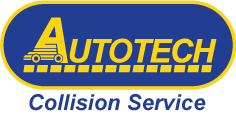It makes no sense to cut corners with your Nissan's air bags. Most car manufacturers issue “OEM Position Statements” to car repair shops that outline their expectations of how repairs should be performed. Nissan has issued a statement about the air bags in their vehicles and how...
Category: Safety Questions
Hyundai Does Not Approve of Wheel Reconditioning—Here’s Why That’s Important for Your Repair
Hyundai recognizes that wheel reconditioning is a dangerous and risky method of collision repair. If you are not familiar with wheel reconditioning, it is a process of using various tools and methods to try to repair a damaged wheel, instead of replacing it entirely. Some methods include...
GM Says It’s Dangerous to Use Salvage Structural Parts on Your GMC—Here’s Why They’re Right
Using salvage parts on your structural repair just isn't worth the risk. When you take your GMC to a body shop for collision repair, of course you’re going to want the job to be done as safely, efficiently, and cost-effectively as possible. At our shop, one of the ways we...
Why It’s Essential That GM Recommends Pre- and Post-Repair Scans for Your GMC
GM naturally wants body shops to be thorough when conducting repairs. If your GMC has been in a collision, there are very specific steps that an auto body shop needs to take in order to optimize your vehicle’s repairs. One of the smartest things that a shop can do is...
Why Honda Rejects Wheel Reconditioning in Collision Repair and How This Affects You
Wheel reconditioning is a dangerous practice in collision repair. Honda is very clear that the company does not approve of any wheel repair that involves reconditioning. If you are not familiar with wheel reconditioning, it is a process of using various tools and methods to try to...
Honda Recommends Only Using OEM Parts on Structural Repairs—Here’s Why That's Important
Honda doesn't want you to take any chances with your structural repairs. If you’re in a collision and need to take your Honda to a shop for repairs, it only makes sense that you would want the job to be done as safely, efficiently, and cost-effectively...
Why Chevrolet Only Approves New Genuine GM Parts for Use with Advanced Driver Assistance Systems and Why You Should Care
Your Chevrolet's ADAS requires new OEM replacement parts in order to function as intended by GM. When you take your Chevy to a shop for repairs, it’s imperative that the shop follows the guidelines specified in General Motors’ Position Statement. Every shop has access to this information, but not...
Why Chevrolet Recommends Only New GM Air Bag Components and Why That’s Important for Your Repair
GM wants to maximize your safety with properly functioning air bags in your Chevy. In the auto body repair industry, we are provided with manufacturers’ Position Statements that describe each auto maker’s recommendations for how those repairs should be done. General Motors has released a detailed statement explaining why...
Why Volvo Doesn’t Approve of Reconditioned Wheels and How This Can Affect Your Collision Repair
Reconditioning can threaten the structural integrity of your Volvo's wheels. Volvo is very clear that the company does not approve of any wheel repair that involves reconditioning. If you are not familiar with wheel reconditioning, it is a process of using various tools and methods to try to...
Ford Approves Only OEM Parts on Structural Repairs—Here’s Why That’s Important
Structural components offer additional protection in the event of a collision and require the right parts to work properly. It is common practice in our industry for each vehicle manufacturer to provide “Position Statements” that explain the best methods for repairing their makes and models. ...




